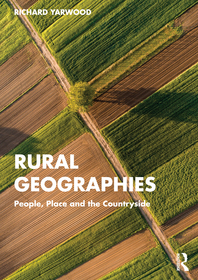
A History of Modern Political Thought in East Central Europe
Volume II: Negotiating Modernity in the 'Short Twentieth Century' and Beyond, Part I: 1918-1968
- Publisher's listprice GBP 120.00
-
57 330 Ft (54 600 Ft + 5% VAT)
The price is estimated because at the time of ordering we do not know what conversion rates will apply to HUF / product currency when the book arrives. In case HUF is weaker, the price increases slightly, in case HUF is stronger, the price goes lower slightly.
- Discount 10% (cc. 5 733 Ft off)
- Discounted price 51 597 Ft (49 140 Ft + 5% VAT)
Subcribe now and take benefit of a favourable price.
Subscribe
57 330 Ft

Availability
printed on demand
Why don't you give exact delivery time?
Delivery time is estimated on our previous experiences. We give estimations only, because we order from outside Hungary, and the delivery time mainly depends on how quickly the publisher supplies the book. Faster or slower deliveries both happen, but we do our best to supply as quickly as possible.
Product details:
- Publisher OUP Oxford
- Date of Publication 1 November 2018
- ISBN 9780198737155
- Binding Hardback
- No. of pages482 pages
- Size 240x164x33 mm
- Weight 870 g
- Language English 160
Categories
Short description:
This volume begins with examining the repercussions of the collapse of multinational empires in the region after World War I, and analyzes the multiple cycles of democratization and authoritarian backlash.
MoreLong description:
A History of Modern Political Thought in East Central Europe is a synthetic work, authored by an international team of researchers, covering twenty national cultures and 250 years. It goes beyond the conventional nation-centered narratives and presents a novel vision especially sensitive to the cross-cultural entanglement of political ideas and discourses. Its principal aim is to make these cultures available for the global 'market of ideas' and revisit some of the basic assumptions about the history of modern political thought, and modernity as such.
The present volume is a sequel to Volume I: Negotiating Modernity in the 'Long Nineteenth Century'. It begins with the end of the Great War, depicting the colorful intellectual landscape of the interwar period and the increasing political and ideological radicalization culminating in the Second World War. Taking the war experience both as a breaking point but in many ways also a transmitter of previous intellectual traditions, it maps the intellectual paradigms and debates of the immediate postwar years, marked by a negotiation between the democratic and communist agendas, as well as the subsequent processes of political and cultural Stalinization. Subsequently, the post-Stalinist period is analyzed with a special focus on the various attempts of de-Stalinization and the rise of revisionist Marxism and other critical projects culminating in the carnivalesque but also extremely dramatic year of 1968. This volume is followed by Volume II: Negotiating Modernity in the 'Short Twentieth Century' and Beyond, Part II: 1968-2018.
[the reader] will receive something like a universal formula encompassing the history of the region's political thought from the eighteenth century until the present ... The merit of this book is that it has introduced -- hopefully for good -- a whole series of previously-missing links into international academic discourse ... it is really worthwhile to read this weighty work.
Table of Contents:
Part I: Transcending Modernity: Interwar and Wartime Visions of Regeneration
Nation-State Building and its Alternatives
Liberalism on the Defensive
The Many Faces of Leftism
The 'Third Way'
Towards a Conservative Revolution
A New State for 'New Men'
World War II: Collaboration, Resistance, and Visions of the Postwar Orde
Part II: Hybridized Modernity: Communism, Reformism, and Dissent in a Divided Europe
The Postwar 'Transition Years'
Stalinism and De-Stalinization
Towards Socialism with a Human Face?












